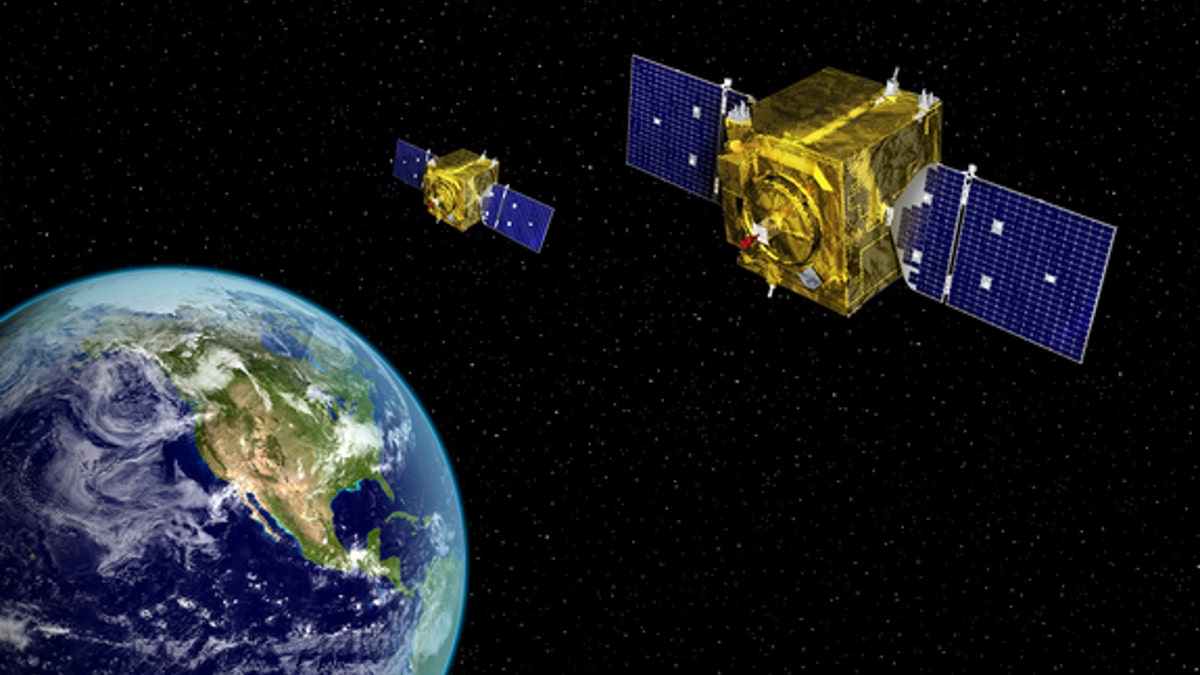
(U.S. Air Force)
Upcoming satellite technology could lower prices for Internet services, a new report predicts.
Low Earth Orbit (LEO) satellites from Elon Musk’s SpaceX Starlink project and Jeff Bezos’ Project Kuiper could save American households more than $30 billion per year by introducing more broadband competition, according to a report from BroadbandNow.
“The arrival of this emergent technology is likely to drive down monthly internet prices for hundreds of millions of Americans,” the report said. In short, the more broadband Internet services available in an area, the lower the price consumers will pay on average.
ELON MUSK GOES AFTER BEZOS' MOON LANDER WITH LEWD JOKE
These LEO satellites orbit the planet between 99 to 1,200 miles, compared to 22,000 miles for traditional GEO satellites. That means "less time to transfer information (lower latency) and a quality of service comparable to wired broadband cable and fiber providers," BroadbandNow added.
Last week, Gwynne Shotwell, president of SpaceX, said the company will launch dozens of Starlink low-orbit satellites in mid-May. According to several reports, SpaceX has plans for more LEO satellites.
Amazon has also put in a request to spectrum regulators for a constellation of 3,236 satellites, according to reports. The Bezos-led company specifically mentioned that LEO satellites would provide low-latency, high-speed Internet service to “unserved and underserved communities,” according to Spacenews.
The average lowest available monthly price for the estimated 104 million Americans with only one wired broadband provider is $68, BroadbandNow said. For the approximately 75 million Americans with the choice of two providers, that average lowest price drops to $59. For the 15 million Americans with five or more choices, the price falls to $47.
And with low-latency satellites, the quality of the service could also improve.
“When video chatting or watching a livestream, a high latency will cause delays that might be disruptive, depending on its severity and a host of other conditions,” Tyler Cooper, editor at BroadbandNow, told Fox News.
“No single activity relies on low latency like gaming does,” Cooper added. “In online video games, players often interact directly with each other, and in the case of competitive games, these interactions are often split-second exchanges. In this scenario, low latency can actually mean the difference between ‘playable’ and ‘unplayable.’”
The SpaceX and Amazon projects are at still at a very early stage so don’t expect competition to change overnight, Cooper said. “There are no guarantees in this industry, but provided they are able to build out the networks they have described thus far, these companies truly will be in the position to bring unprecedented levels of access to millions of Americans who are currently underserved.”
Other companies are also working on LEO projects, but those are said to be in the early stages.








































